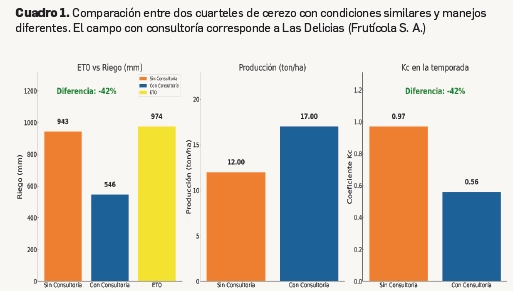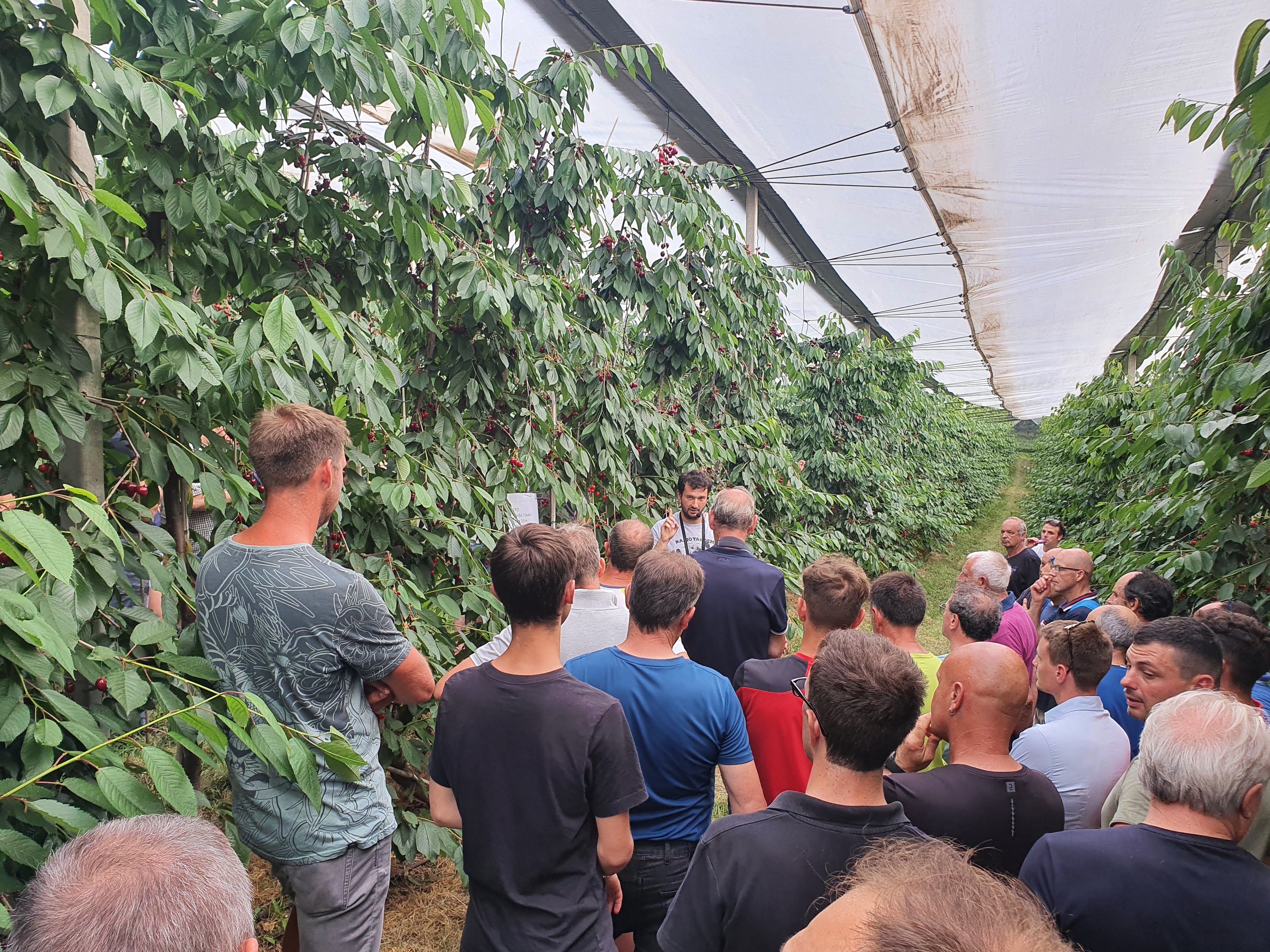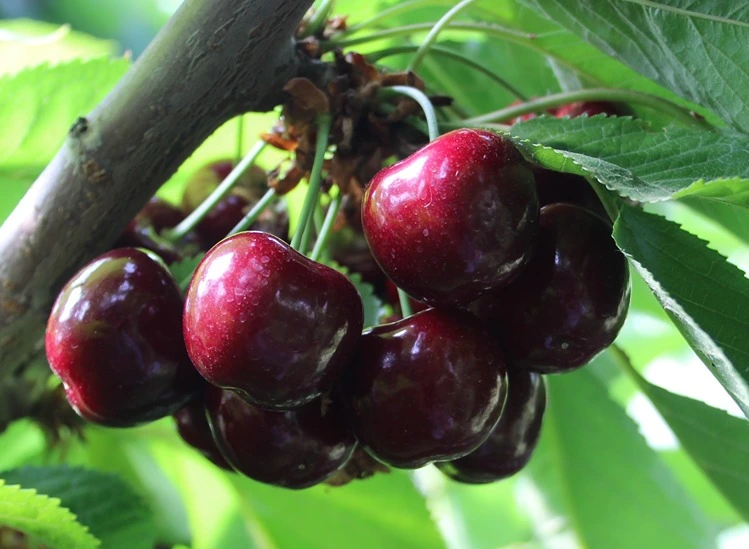The 2024/25 cherry season far exceeded the results of the previous year, with 626,013 tons of fruit, equivalent to 123.2 million boxes exported. This represents an increase of over 50% in exported fruit and 48% more boxes shipped to the Asian market, confirming an exceptional year in terms of production.
At CDTEC, we see it every day: often the margin is not lost because of the fruit, but due to outdated practices or insufficient attention to key factors like irrigation. Good water management and irrigation practices must be based on accurate information and proper strategy.
Irrigation is essential for productive success, not only in terms of quantity and quality of the harvest, but also for the sustainability of the process. Today, having technology installed is not enough. If the information is not interpreted and used correctly, and if strategies are not monitored, it is very difficult to achieve real efficiency.
Information and Strategy
This is why, at CDTEC, our focus is on information management, which is what truly enables us to reach and exceed productive potential.
This vision led to our Comprehensive Irrigation Consulting Service, which supports the producer from data collection through to implementation and monitoring of tailored irrigation strategies.
What does the service include?
Our service is based on the integration of key data related to:
- Soil (moisture, temperature, electrical conductivity),
- Plant (NDVI, dendrometry),
- Irrigation, and
- Climate,
to make informed decisions and optimize resource use.
It includes:
- Initial assessment with collection of historical and current data
- Ongoing training for the technical team
- Weekly irrigation planning through technical meetings between client and consultant
- Field visits and characterization of cultivated sectors
- End-of-season report (irrigation/productivity), with result analysis and strategic adjustments
- Data visualization on Power BI, with real-time access to strategy performance
Real Case: Less Water, More Fruit
This season, we compared two plots of Santina cherry trees in the Metropolitan Region, under similar conditions and equipped with technology, but managed with different strategies. One was managed without consulting support; the other received our technical assistance.
The plot without consulting used 9,430 m³/ha during the season, yielding 12 tons per hectare. The one with consulting applied only 5,460 m³/ha — 42% less water — but obtained 17 tons per hectare.
This shows that more water does not necessarily mean more or better-quality fruit, but it certainly means higher operating costs. If such costs are not managed based on data, they can make the difference between a profitable and a loss-making operation.
To this cost, we must also add not only the water resource used, but also the associated energy consumption, the labor required, the unnecessary use of fertilizers, and the impact on the soil’s physical, chemical, and biological properties.
 Chart 1. Comparison between two cherry plots with similar conditions and different management strategies. The plot with consulting corresponds to Las Delicias (Frutícola S.A.).
Chart 1. Comparison between two cherry plots with similar conditions and different management strategies. The plot with consulting corresponds to Las Delicias (Frutícola S.A.).
Experience and Knowledge
At CDTEC, our value lies not only in the positive results achieved with growers, but in the more than 25 years of real data collected across various species, zones, and irrigation systems. This experience validates our recommendations and allows us to adapt each strategy to actual field conditions.
We know that true competitiveness is achieved when information is turned into decisions. Because efficiency and sustainability are not abstract concepts — they become real only when data is used correctly. Without information, there can be no effective management.
Source: Mundoagro
Image source: SL Fruit Service
CDTECH
Mundoagro
Cherry Times – All rights reserved











